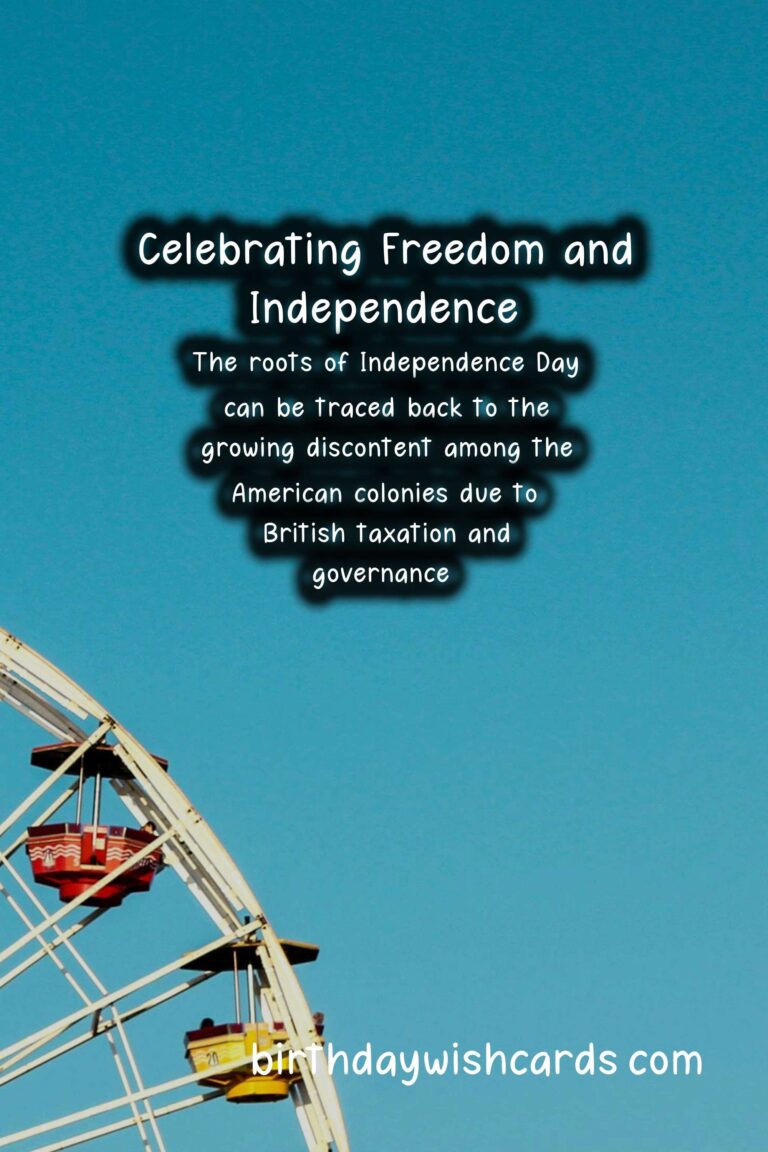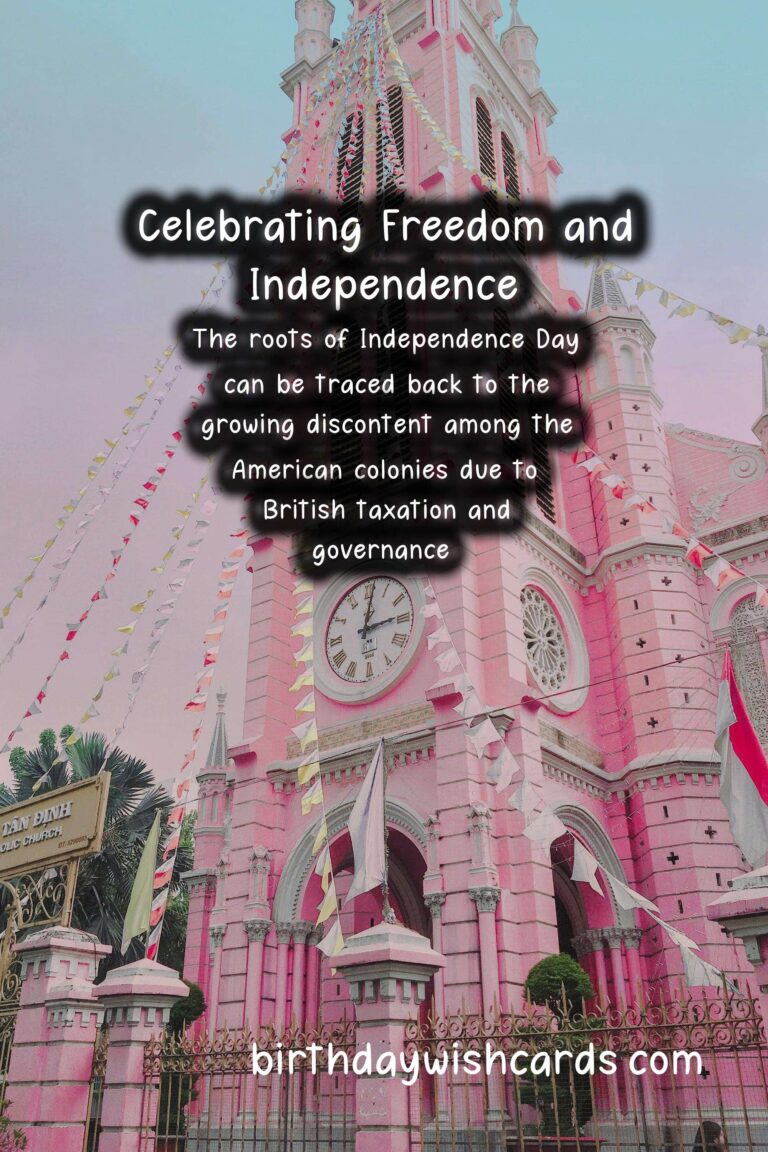
Independence Day is a federal holiday in the United States, celebrated annually on July 4th. It marks the adoption of the Declaration of Independence on July 4, 1776, when the thirteen American colonies declared their independence from British rule. This historic day is not only a celebration of freedom but also a reflection of the values and beliefs that the nation was founded upon.
Origins of Independence Day
The roots of Independence Day can be traced back to the growing discontent among the American colonies due to British taxation and governance. Events like the Boston Tea Party and the Intolerable Acts fueled unrest and a desire for self-governance. The Continental Congress convened in 1775 with representatives from various colonies, ultimately leading to the necessity of a formal declaration of independence.
On June 7, 1776, Richard Henry Lee introduced a resolution for independence during a meeting at the Continental Congress. This resolution was debated and led to the formation of a committee, including Thomas Jefferson, John Adams, and Benjamin Franklin, tasked with drafting the Declaration of Independence.
The Declaration of Independence
Thomas Jefferson is credited with writing the majority of the document. The Declaration of Independence eloquently articulated the colonies’ rationale for seeking independence, emphasizing the rights to life, liberty, and the pursuit of happiness. It also laid out the lists of grievances against King George III, articulating the colonies’ struggles against tyranny and oppression.
The Declaration was officially adopted on July 4, 1776, and the day has since been commemorated as Independence Day. While the document was revolutionary at its time, it also served as an inspirational beacon for various movements advocating for freedom and rights across the globe.
Significance of Independence Day
Independence Day represents the core values of American democracy and freedom. It serves as a reminder of the sacrifices made by individuals who fought for independence and the continuing fight for equality and justice. The day brings together communities across the nation as people celebrate in various ways, from parades and fireworks to family barbecues and picnics.
Traditions and Celebrations
Over the years, various traditions and celebrations have emerged to mark Independence Day. Fireworks displays are perhaps the most iconic representation, symbolizing the joy of freedom and the culmination of a nation’s struggle for liberty. Cities and towns organize parades, featuring marching bands, military displays, and floats that represent community spirit.
Many families celebrate with backyard cookouts, featuring traditional foods like hamburgers, hot dogs, and apple pie. Flag waving and the singing of the National Anthem further emphasize national pride. People often adorn their homes and outfits in red, white, and blue, showcasing their patriotism.
Independence Day Around the World
While July 4th is uniquely American, many countries celebrate their independence on various dates throughout the year. For instance, India celebrates its independence from British rule on August 15th, while Mexico observes its independence on September 16th. Each nation has its own distinct traditions and observances that reflect its cultural significance.
These celebrations often include ceremonies, speeches, and parades, highlighting the importance of self-determination and national pride in each respective country.
Modern Day Importance
In today’s world, Independence Day continues to hold immense significance. It is a time for reflection on the values of freedom and democracy, and their relevance in modern society. The day also serves as an opportunity to delve into discussions about civil rights and the ongoing challenges faced by marginalized communities.
Independence Day encourages public discourse about what it means to be free and the responsibilities that come with that freedom. It acts as a reminder to fight for the rights of others, in alignment with the ideals set forth in the Declaration of Independence.
Conclusion
Independence Day is far more than just a holiday marked by fireworks and festivities; it is a profound reminder of the principles that form the foundation of the United States. Celebrating this day allows us to honor the past, acknowledge the struggles for freedom, and strive for a future where the ideals of liberty and justice are attainable for all.
As we commemorate Independence Day, let us remember the sacrifices made for our freedom and renew our commitment to uphold the values that make our nation great.
Independence Day is a federal holiday in the United States, celebrated annually on July 4th. The roots of Independence Day can be traced back to the growing discontent among the American colonies due to British taxation and governance. 













